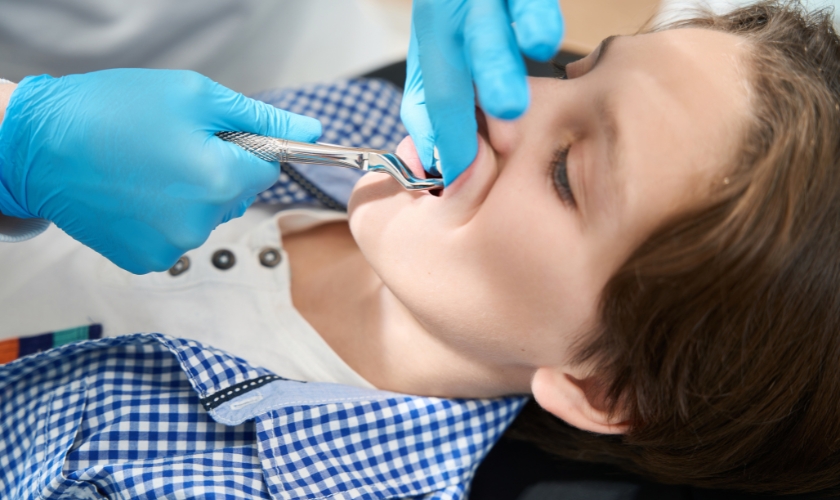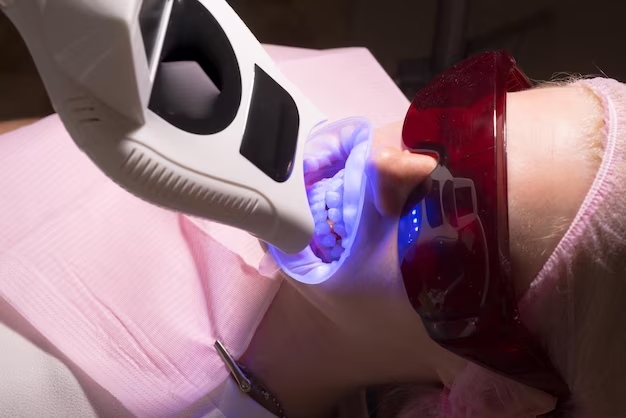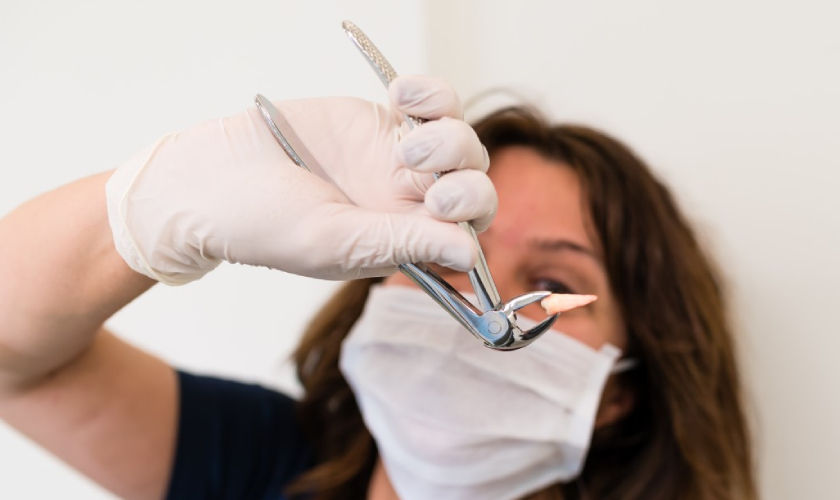
Tooth extraction is a common dental procedure that removes a tooth from its socket in the jawbone. While it can be a necessary step to maintain oral health, the ideal age for extraction depends on several factors beyond just your chronological age. Here, we’ll delve into these key considerations that influence when a dentist might recommend tooth removal:
- Age-Related Dental Changes:
- Children: As baby teeth naturally loosen and fall out to pave the way for permanent teeth, extraction might be needed if a baby tooth is excessively loose and causing discomfort or interfering with permanent tooth eruption. Impacted wisdom teeth in teenagers can also necessitate extraction to prevent crowding or damage to other teeth.
- Adults: With age, adults become more susceptible to gum disease (periodontal disease), which can weaken the bone supporting the teeth. In severe cases, tooth extraction might be necessary to prevent further bone loss.
- Seniors: Bone loss is a natural part of aging, and seniors may require extraction due to loose teeth or complications with underlying dentures.
- Underlying Medical Conditions:
Certain medical conditions can influence the decision for tooth extraction. For instance, patients with weakened immune systems or undergoing chemotherapy might need problematic teeth removed to minimize the risk of infection.
- Bone Health and Extraction Success:
Healthy jawbone density is crucial for a successful extraction and proper healing. Patients with osteoporosis or other bone-weakening conditions might require bone grafting procedures to strengthen the jawbone before tooth extraction.
- Importance of Considering Alternative Treatments:
Whenever possible, dentists prioritize saving natural teeth. Depending on the situation, alternative treatments like root canals, fillings, or crowns might be explored to preserve the tooth structure before considering extraction.
Common Reasons for Tooth Extraction Across Age Groups
Tooth extraction can become necessary for various reasons throughout life. Here’s a breakdown of common scenarios where tooth removal might be recommended across different age groups:
Children:
Baby Teeth: Primary (baby) teeth naturally loosen and fall out to make space for permanent teeth. Extraction might be needed if a baby tooth is:
- Excessively loose and causing pain or discomfort.
- Impeding the eruption of a permanent tooth.
- Infected and unresponsive to antibiotic treatment.
Wisdom Teeth: Wisdom teeth are the third molars that erupt in late teens or early twenties. If wisdom teeth are impacted (stuck below the gum line), causing overcrowding, or pose a threat to other teeth, extraction might be recommended.
Teenagers:
- Overcrowding: When there’s insufficient space in the jaw for all permanent teeth to erupt properly, strategic extraction (often premolars) can create space for orthodontic treatment (braces) to achieve optimal alignment.
- Damaged Teeth: Severely damaged teeth due to decay, trauma, or cracks that cannot be repaired with fillings or crowns that might necessitate extraction.
Adults:
- Severe Tooth Decay: Extensive cavities that reach the pulp (inner tooth) and cause significant pain or infection might be beyond saving with a root canal. In such cases, extraction might be the best option.
- Periodontal Disease: Gum disease that weakens the jawbone supporting the teeth (periodontitis) can lead to tooth loosening and potential loss. In severe cases, extraction might be necessary to prevent further bone loss and infection.
- Fractured Teeth: Teeth with vertical cracks extending to the root or fractures causing severe pain and compromising tooth integrity might require extraction.
Seniors:
- Impacted Teeth: Similar to teenagers, impacted wisdom teeth can cause problems even in seniors. Extraction might be recommended to prevent discomfort or damage to surrounding teeth.
- Loose Teeth Due to Bone Loss: As part of the aging process, bone loss around the teeth can occur. If teeth become loose and non-functional due to bone loss, extraction might be necessary, particularly if dentures are planned.
Remember, this list is not exhaustive. Consulting a dentist is crucial for proper diagnosis and determining the best course of treatment for your specific situation.
Pre-operative Considerations for Tooth Extraction
Before a tooth extraction, careful planning and preparation are essential for a smooth procedure and optimal healing. Here’s a breakdown of key pre-operative considerations:
- Pre-extraction Consultation and X-rays:
- A thorough consultation with your dentist is vital. They will discuss your medical history, any medications you’re taking, and the reason for the extraction.
- X-rays will be taken to assess the tooth’s position, root structure, and surrounding bone health. This helps the dentist plan the extraction technique and identify any potential complications.
- Reviewing Medical History for Potential Complications:
- Your dentist will review your medical history to identify any conditions that might increase the risk of complications during or after extraction.
- Be sure to disclose any pre-existing conditions like heart disease, diabetes, or a weakened immune system.
- Medications you take, especially blood thinners or those affecting blood clotting, might need to be adjusted before surgery.
- Choosing the Right Anesthesia for the Procedure:
- Different types of anesthesia can be used for tooth extraction, depending on the complexity of the procedure and your comfort level.
- Options include local anesthesia (numbing the area around the tooth), nitrous oxide (laughing gas) for relaxation, or general anesthesia (putting you to sleep) for more complex procedures.
- Discuss anesthesia options with your dentist to determine the most suitable approach for your needs.
- Preparing for Post-operative Care:
- Following your dentist’s instructions for post-operative care is crucial for a smooth recovery.
- This might include instructions on managing bleeding, pain medication recommendations, dietary modifications to promote healing, and proper oral hygiene practices.
- Having gauze pads and pain medication readily available at home beforehand is recommended.
By carefully considering these pre-operative factors, you can ensure you’re well-prepared for your tooth extraction and optimize your healing process.
Post-operative Care After Tooth Extraction at Different Ages
Following a tooth extraction, proper care is essential for optimal healing and minimizing discomfort. While the general principles of post-operative care remain similar across age groups, there might be some slight variations in how well each age group tolerates certain aspects of healing. Here’s a breakdown of key considerations:
Bleeding Control and Pain Management:
- Children: Young children might require more frequent reassurance and gentle pain management strategies like children’s pain medication or topical numbing agents.
- Teenagers and Adults: Teenagers and adults can generally tolerate over-the-counter pain relievers like ibuprofen or acetaminophen for managing post-operative discomfort.
- Seniors: Seniors, especially those taking blood thinners, might need to be more cautious with pain medication and closely follow their dentist’s instructions.
Dietary Modifications Based on Healing Stages:
- All Age Groups: In the first 24-48 hours after extraction, it’s recommended to stick to soft, cool foods like applesauce, yogurt, or mashed potatoes.
- Children: For young children, ensure the chosen soft foods are nutritious and easy to swallow.
- Adults and Seniors: As healing progresses, gradually introduce solid foods but avoid anything too crunchy, spicy, or hot that could irritate the extraction site.
Importance of Oral Hygiene After Tooth Extraction:
- All Age Groups: Maintaining good oral hygiene is crucial to prevent infection after extraction. However, avoid vigorous brushing or flossing directly at the extraction site for the first few days.
- Children: Supervise young children during brushing to ensure they’re gentle around the extraction site.
- Adults and Seniors: Use a soft-bristled toothbrush and gently rinse with warm salt water solution (dissolve half a teaspoon of salt in a glass of warm water) to keep the mouth clean.
Potential Risks and Complications to Watch Out for:
- All Age Groups: Be aware of potential post-operative complications like prolonged bleeding, swelling, or severe pain.
- Children: Monitor children for signs of fever or difficulty swallowing, which could indicate infection.
- Adults and Seniors: People with compromised immune systems or underlying health conditions should be especially vigilant for signs of infection.
Final Thoughts
Tooth extraction is a common dental procedure in Berwyn, but the ideal age for it depends on various factors. This comprehensive guide has explored the reasons for tooth extraction across different age groups, along with crucial pre and post-operative considerations. By understanding these factors and potential risks, you can make informed decisions about your oral health. Remember, consulting a certified dentist in Berwyn is essential for a smooth extraction process and optimal recovery at any age.
Frequently Asked Questions
Is there a maximum age limit for tooth extraction?
There isn’t a strict age limit for tooth extraction. However, as we age, bone health can become a concern. If you’re a senior considering extraction, your dentist will assess your jawbone density and might recommend bone grafting procedures to ensure a successful extraction and optimal healing.
What are the alternatives to tooth extraction?
Whenever possible, dentists prioritize saving natural teeth. Depending on the situation, alternative treatments like root canals, fillings, crowns, or periodontal (gum) treatment might be explored to preserve the tooth structure.
How long does it take to recover from a tooth extraction?
Healing time after tooth extraction can vary depending on the complexity of the procedure, your overall health, and age. Generally, complete healing can take several weeks. However, most discomfort subsides within the first few days with proper care.


